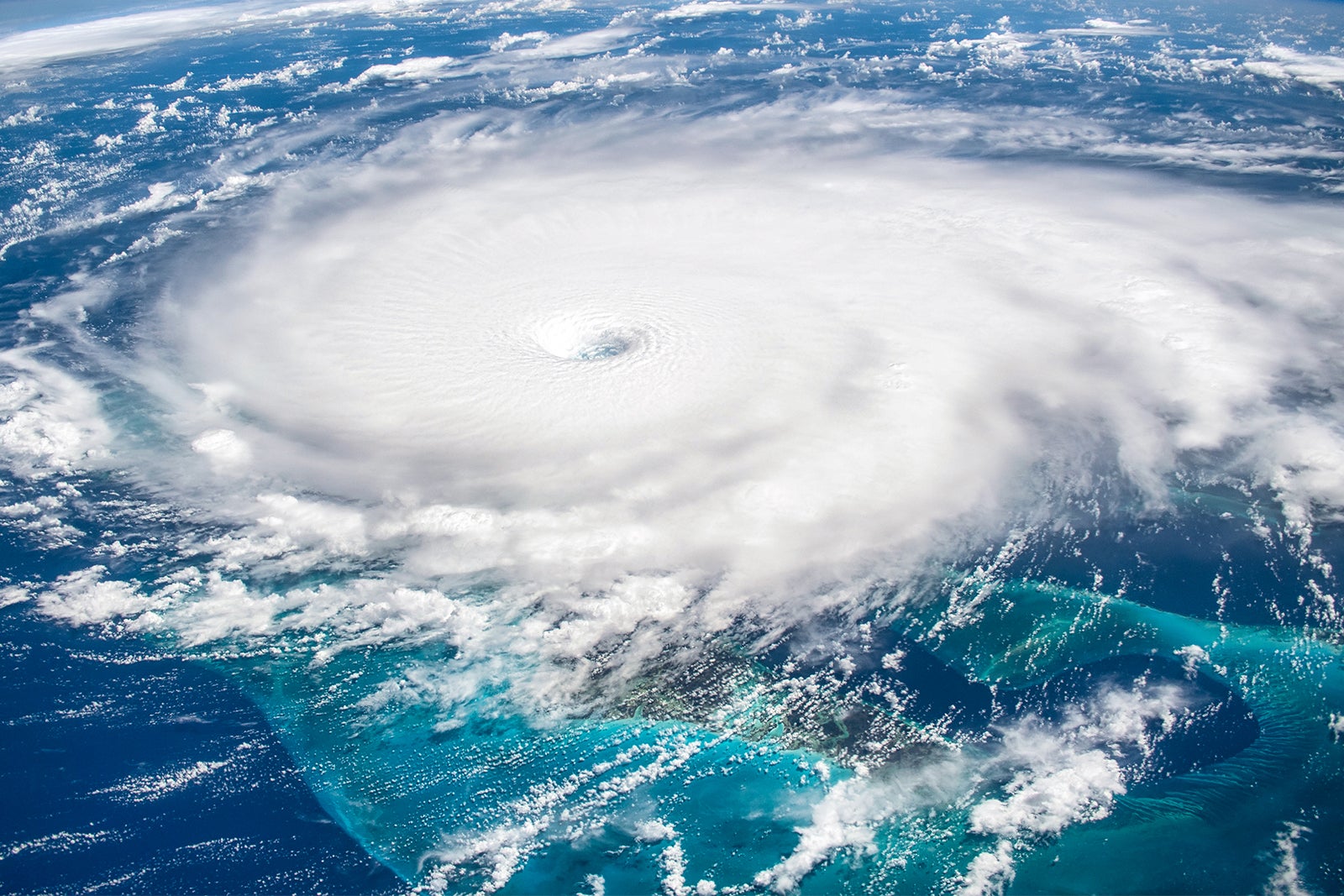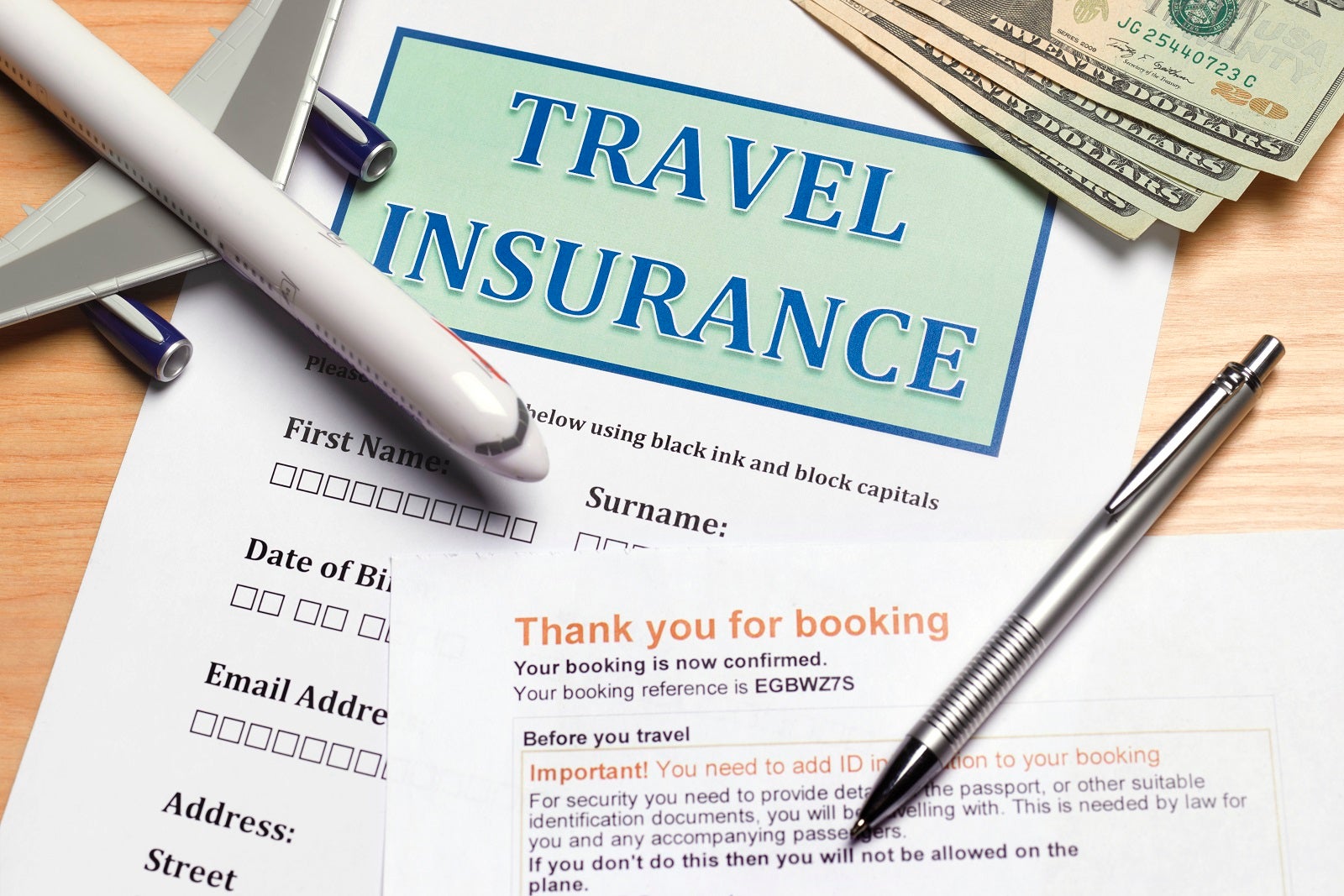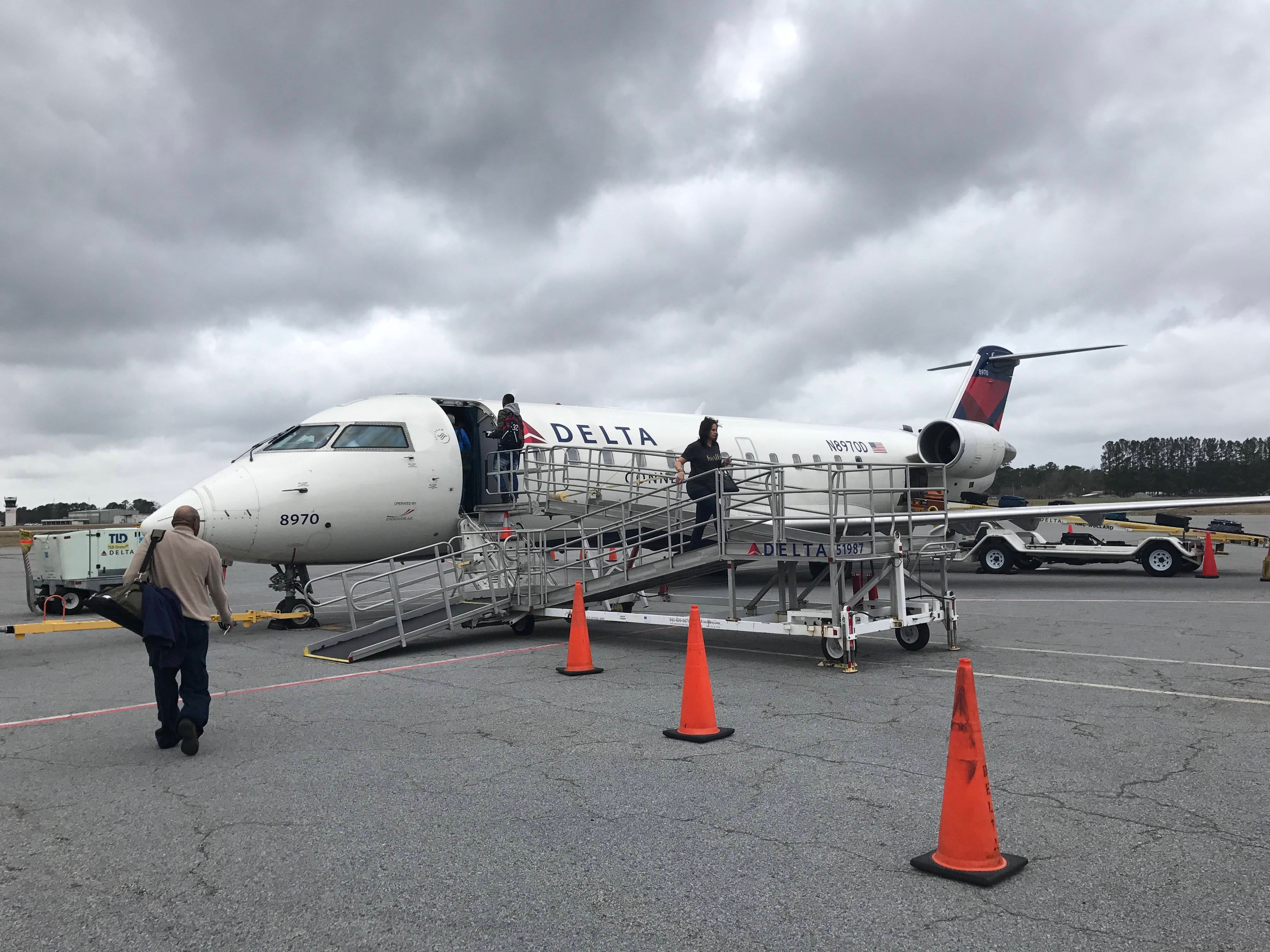Cruising during hurricane season: What to know — and should you go?
Veteran cruisers know that fall is a great time to snag a deal on a cruise to the Caribbean or Bahamas. But the deals come with a big caveat: Fall is hurricane season in these regions, and there’s a chance a hurricane or tropical storm could disrupt your sailing.
During most years, at least a few fall cruises are affected by storms. In some years, dozens of voyages are affected.
For more cruise guides, news and tips, sign up for TPG’s cruise newsletter.
Still, even during peak hurricane season weeks (more on that below), most sailings in the Caribbean and the Bahamas are completed without a hitch. Here’s what you need to know before committing to cruising during hurricane season in these regions.
When is hurricane season for cruises?
In theory, a hurricane or tropical storm can develop in the Atlantic at any time. Still, the vast majority of such storms — about 97%, according to the National Hurricane Center — occur between June 1 and Nov. 30 of any given year. This is the period known as hurricane season in the Atlantic, and it typically brings about 14 named tropical storms, half of which become hurricanes.
Within this time frame, the peak period for tropical storms in the Atlantic, by far, is the weeks between mid-August and mid-October. This is the key “iffy zone,” as I like to call it, for cruises to the Caribbean and the Bahamas, as well as sailings out of eastern U.S. ports to Bermuda and New England.
Still, even during peak weeks for hurricane formation, the odds of your cruise being affected by a hurricane are relatively small. A glance at any cruise booking site will show hundreds of sailings departing for the Caribbean and the Bahamas each year during cruise hurricane season. In most years, though, only a small portion of these are affected by tropical storms.
Even during the busiest of hurricane seasons, there will be many weeks without a single tropical storm in the Caribbean or Bahamas. When a large storm does swirl through the Caribbean or Bahamas, it’ll likely only affect a small portion of the region and, thus, only a small number of cruise ships.
One thing to keep in mind is that the Caribbean is enormous in comparison to the size of a typical hurricane. The distance between Belize, on the western end of the Caribbean Sea, and the easternmost Leeward Islands is nearly 2,000 miles. The hurricane-force winds of a typical small hurricane, by contrast, extend just 25 miles out from its center. The hurricane-force winds from a large hurricane might extend as far as 150 miles from its center.

Daily Newsletter
Reward your inbox with the TPG Daily newsletter
Join over 700,000 readers for breaking news, in-depth guides and exclusive deals from TPG’s experts
Related: A beginners guide to picking a cruise line
Even a giant hurricane that is bearing down on St. Thomas in the U.S. Virgin Islands (a common port on Eastern Caribbean sailings), for instance, is likely to have little or no impact on a Western Caribbean or Southern Caribbean sailing happening at that time.
Trying to predict where tropical storms will hit in any given year is a fool’s game. But if you’re playing the odds, one area that is known for seeing fewer storms on average is the southern part of the Caribbean. The southerly islands of Aruba, Bonaire and Curacao (common stops on Southern Caribbean itineraries), in particular, are far south of the typical hurricane track and experience few fall storms.
How many hurricanes are expected in 2024?
For the 2024 hurricane season specifically, the U.S. government’s National Oceanic and Atmospheric Administration predicts an above-normal year with 17 to 25 named storms, of which eight to 13 would become hurricanes.
Of those, four to seven could become major hurricanes, according to the forecast.
The agency cited several factors that tend to favor tropical storm formation, including near-record warm ocean temperatures in the Atlantic Ocean, the development of La Nina conditions in the Pacific, and reduced Atlantic trade winds and less wind shear.
NOAA’s prediction was released on May 23.
In April, another major hurricane forecasting group at Colorado State University also predicted a year with many hurricanes. Its forecast calls for an “extremely active” year with 23 named storms for the season as a whole, of which 11 would become hurricanes.
Of those, five could become major hurricanes with sustained winds of 111 mph or more, according to the Colorado State University forecast.
The Colorado State team also cited warm ocean temperatures as a factor for the elevated forecast.
Your hurricane season cruise itinerary could change
When a tropical storm does appear in one part of the Caribbean or Bahamas, the standard response from cruise lines is to reroute ships in that area to other parts of the Caribbean or Bahamas that are well clear of the storm. This can mean a last-minute change to your cruise itinerary.
Depending on the forecasted track of the storm, the change could be relatively minor — a port stop being pushed back by a day, for instance, or one port being swapped for another port. It could also be far more significant.
To avoid storms, cruise lines will sometimes completely rework an itinerary. A ship on an Eastern Caribbean sailing to such stops as St. Thomas and St. Kitts might reroute to such Western Caribbean ports as Cozumel, Mexico, and Falmouth, Jamaica.
In some cases, a storm will cause a port to be dropped from an itinerary with no new port added as a replacement. Occasionally, you’ll see cruises shortened or extended by a day or two or even three.
The latter situation can occur when a storm is forecast to pass between a ship and its home port around the time the vessel is scheduled to be heading home. The ship either will return to the home port early to arrive before the storm or stay out at sea for extra days to wait for the storm to pass.
Related: 26 cruise secrets from a cruising expert that will blow your mind
In rare cases when a home port closes due to a storm, ships have been known to sail to an alternative port to drop off passengers. In such situations, the vessels sometimes will depart on their next cruise from the alternative port. Cruises are canceled occasionally when a home port experiences extended disruptions related to storms, but this is relatively rare.
You aren’t entitled to compensation for itinerary changes
Cruise lines aren’t obligated to offer you compensation if they change an itinerary due to weather. The fine print in cruise contracts allows them to make such changes when they see fit. However, that doesn’t mean they never offer compensation.
In the case of a port swap — when one port is substituted for another — there typically isn’t any compensation offered. When a port is missed without a substitute, though, there’s a chance you might be offered an onboard credit as compensation. Just don’t count on it. Lines will also refund the cost of any prepaid shore excursions scheduled for the missed port and the portion of port taxes and fees you paid in advance that are associated with that port.
In the case of a shortened voyage, lines will typically offer a prorated refund for the lost days. On the flip side, when cruises are extended, lines generally won’t charge passengers anything more for the extra days — at least for room, board and entertainment. Passengers typically will still have to pay for onboard extras such as drinks and spa treatments.
When cruises are shortened or extended due to weather, cruise lines will often aid passengers who need to change post-cruise travel plans. They might offer free phone calls from the ship or free internet access to make it easier for passengers to contact airlines and hotels to make changes.
You won’t get a refund if you cancel a cruise to avoid a storm
As a rule, cruise lines don’t offer refunds to passengers who cancel a voyage on short notice, even if there’s a big storm brewing in the area where the cruise is scheduled to take place.
If you see there’s a hurricane churning toward the Caribbean a few days before your departure, you can’t call your cruise line, cancel the trip and expect to get your money back.
From the cruise line’s point of view, the cruise will go on — it just might be adjusted a bit. (Or not, depending on how the storm tracks over the coming days.) As far as the line sees it, you’re still about to get what you paid for: a wonderful cruise vacation.
That said, there are exceptions to the rule. When a line knows in advance that a storm will cause a significant alteration to a voyage (for instance, lost days due to a delayed departure), it sometimes will allow passengers to cancel for a refund or credit toward a future cruise.
This happened in 2017 when some lines delayed departures out of Florida as Hurricane Irma approached. The lines that delayed departures allowed passengers to cancel for a refund in the form of a cruise credit. Alternatively, passengers could proceed with the shortened trips and receive a prorated refund for the missed days.
Related: The best time to cruise to the Bahamas
When a line cancels a departure outright, it’s sometimes the case that it will offer passengers both a refund for the trip and a future cruise credit they can apply to their next sailing. This sort of response was on display in 2017 as Irma’s approach prompted some lines to cancel itineraries altogether.
One problem that cruisers encounter in these (relatively rare) situations where a cruise line cancels a sailing due to a storm is that the cancellation usually comes at the last minute. That could leave you in limbo in the days leading up to your cruise, wondering whether your cruise is on or not. If a hurricane is headed for your departure port, you might have to decide whether to travel to the departure port (and possibly into a dangerous storm) or stay home and risk losing all the money you paid for the sailing.
Each line approaches compensation issues differently, and some are historically more generous than others in offering compensation when storm-related disruptions occur. The responses from lines can also vary depending on the circumstances surrounding any given storm.
To avoid remorse, my advice is to go into any hurricane-season booking assuming you will not be compensated for storm-caused itinerary changes and not be able to get a refund if you cancel the trip at the last minute.
The risk of the above is one reason you will generally get a cruise during hurricane season at a lower price than you would during other seasons.
Build wiggle room into your hurricane season travel schedule
If you’re booking a cruise during hurricane season, keep in mind that tropical weather can affect not only cruise ships but airplanes, too.
If you’re flying to your cruise departure point, build in plenty of wiggle room in case air travel is affected by a big storm and flights are delayed. Your flight could be delayed by a storm that is far away from the destination where you are flying. During hurricane season, tropical storms moving through the Caribbean and into the Gulf of Mexico and up the East Coast of the U.S. can sometimes snarl air traffic across a wide swath of North America.
At TPG, we always suggest that cruisers head to their departure ports at least a full day in advance of their sailings just to be safe, and this is doubly important during hurricane season. You don’t want a delayed flight to be the reason you miss your cruise.
Travel insurance is key for fall cruises
It’s always a good idea to book flights and cruises with a card that provides travel protections — and this is especially important during hurricane season.
Some cards, such as the Chase Sapphire Reserve®, will reimburse you for at least some of the costs of trip delays, cancellations and interruptions related to severe weather if you have booked the trip on the card. The travel protection benefits provided by such cards may also reimburse you for expenses when your baggage is lost or delayed.
Just be warned that these benefits often come with a lot of fine print that can make it tough to collect in some circumstances.
You can also buy separate travel insurance just for the single trip that will provide reimbursement if you experience trip delays, cancellations or interruptions. These plans include a lot of fine print that limits the circumstances where they are valid, and they vary widely in what they offer.
While travel insurance policies often will cover the cost of changing a flight or pre-cruise hotel reservation if a storm delays your cruise departure, they generally don’t offer compensation in the case that a cruise line changes the ports on your cruise due to a storm. Travel insurance policies also won’t help if you cancel a cruise to avoid a storm — unless you’ve bought a pricey “cancel for any reason” policy.
Also note that to make any claim under a travel insurance policy related to a cruise marred by a hurricane or tropical storm, you have to have bought the policy before the storm formed and was officially named.
Related: The 5 best cruise travel insurance plans
You may experience rough seas
Cruise lines will reroute ships by hundreds of miles to avoid tropical storms and hurricanes. That doesn’t mean you can always expect smooth sailing during hurricane season.
If a big storm is present in the Caribbean or Bahamas, there’s a chance you’ll feel some motion on your vessel, even if it’s far from the center of the storm. Swells from big storms can travel thousands of miles.
If you’re particularly prone to seasickness, hurricane season might not be the best time for you to cruise. But don’t panic. Cruise ships are built with sophisticated stabilizers that tamp down the effects of waves. As ships have gotten bigger, on average, they’ve also become more stable. It takes a lot to move a giant vessel like Royal Caribbean’s Wonder of the Seas — at 236,857 tons, it’s one of the world’s largest cruise ships.
Any rough seas you may experience due to a nearby storm are likely to be temporary. Many cruise ships operating in the Caribbean can sail at speeds of up to 22 knots, or about 25 mph. That means they can move as much as 300 miles in one day. You can be somewhere stormy and rough one day only to find yourself in sunny and clear conditions a day later.
Just as airline pilots maneuver to avoid turbulence, cruise ship captains and their headquarters-based overseers are keenly aware of passenger safety and comfort. They aren’t shy about making a call to reposition a vessel to calmer seas.
Be careful booking shore excursions during hurricane season
Not all cruisers book shore tours through their cruise line. Some book excursions through alternative tour companies such as Viator or PortSide Tours. If you go this route for a hurricane-season cruise, be sure to check cancellation policies before prepaying for excursions.
While cruise lines will automatically refund you for prepaid shore excursions you’ve booked directly with them in the case of a canceled port call, it isn’t a given that an outside tour company will do the same. Some will, for sure, but others require a nonrefundable deposit that may be hard to get back, even in the case of a storm-caused itinerary change. (Note: Travel insurance policies sometimes cover the cost of lost nonrefundable deposits.)
Related: How to book a cruise using points and miles
Bottom line
Cruises that take place in the Caribbean and the Bahamas during the height of hurricane season can be an incredible deal, and many are completed with nary a problem. However, before booking one, you want to be sure you’re OK with the idea that your itinerary could change on short notice or be disrupted in some other way. It doesn’t happen often, but it does happen.
If you’re booking a cruise to the Caribbean or Bahamas to see a specific destination — St. Kitts, for instance, or the British Virgin Islands — a hurricane-season cruise may not be for you. However, if you’re flexible and want a fun and inexpensive getaway at sea, there’s no reason to fear a fall sailing.
Planning a cruise? Start with these stories:







